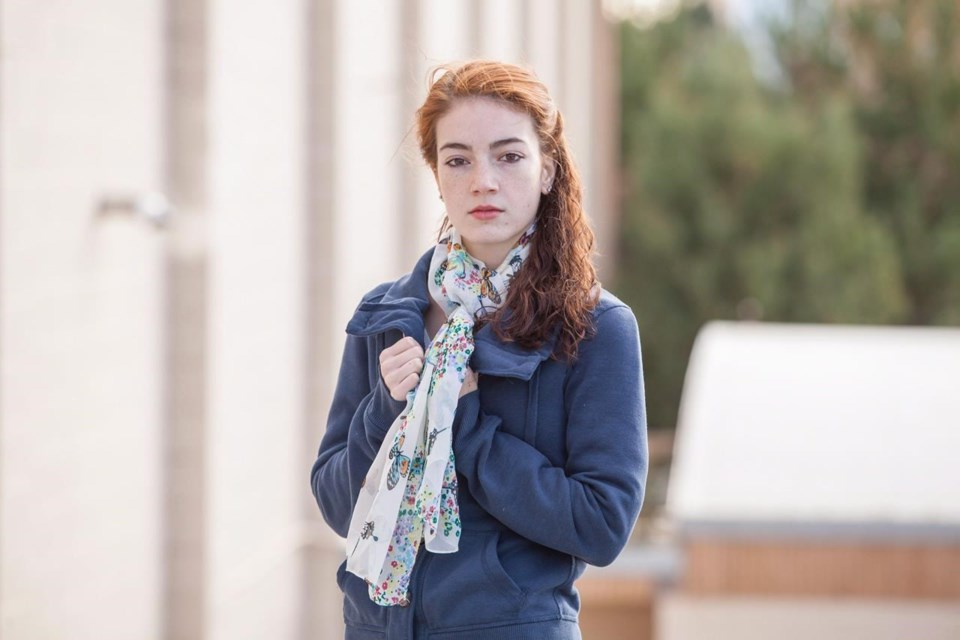VANCOUVER — University of British Columbia Okanagan has been ordered to pay a former student $50,000 for discriminating against her based on her sex and disability in the way it handled her allegation of sexual assault by another student.
The B.C. Human Rights Tribunal says in a ruling that the university's method of investigating non-academic misconduct exacerbated Stephanie Hale's PTSD and caused her harm to the point that she couldn't participate in the process.
The tribunal says that although the university had a high-level understanding of sexual violence and a commitment to support survivors, its response didn't result in a reasonable investigation process or restore a "discrimination-free learning environment."
The university says in a statement it's reviewing the ruling and has made significant changes since Hale's case.
The 132-page decision handed down late last month says the discrimination was very serious, involving a power imbalance and Hale's "unique vulnerability."
The decision details how there was no clear mechanism for Hale to complain about the sexual assault and that despite telling multiple people at the university that she had been raped on campus by another student in 2013, it took three years for anyone with the university to inform her about the complaint process.
It says even after Hale made an official complaint she was not provided with details, the process was confusing and some of the information she received was inaccurate.
Up until two days before the university's hearing was originally scheduled to begin in 2016, Hale was still trying to obtain basic information like where she was supposed to go, what documents the committee would have and why she could not have help representing herself.
“In sum, the process for addressing the assault was unclear and confusing. The information given to Ms. Hale was incomplete, at times inaccurate, and she was required to undertake significant effort on her own to obtain much of it," the ruling says.
"This was not reasonable, especially considering what UBC knew about the needs of survivors generally and what Ms. Hale told UBCO about the impact of the process on her specifically.”
The ruling says Hale’s decision not to participate in the university hearing was "the culmination of many difficult months" raising concerns about the process and in particular its impact on her mental health.
She worried about having to re-live the assault in front of a panel, which included other students, being confronted with evidence from her alleged attacker, and not having complete information about the process in advance.
"At every stage, and in every way, Ms. Hale had no control over her allegations," the ruling says.
The university hearing went ahead without Hale's participation and UBC's then-president Santa Ono dismissed her complaint against the other student in 2017, citing a lack of evidence.
The student has denied the allegations and said what happened was consensual.
In its ruling, the tribunal says Hale received almost no information about the university’s investigation of her allegations aside from its outcome and the university did not take any further steps to restore a safe, discrimination-free, educational environment.
"From Ms. Hale’s perspective, she was worse off for having reported her allegations to UBCO and engaged the (university's) process."
In its statement, the university says it is reviewing the tribunal's ruling to “inform next steps.”
“UBC treats allegations of sexual misconduct and supports for survivors very seriously and has taken a number of crucial steps since 2017 to provide prevention services, support to survivors and an investigative framework to address allegations of sexual misconduct.”
It says allegations of sexual misconduct are now investigated differently, by a specially trained investigator.
It says new offices have been established to address sexual violence, providing resources, support and “a trauma-informed investigation process" for complaints that are within UBC's jurisdiction.
The university has been ordered to pay Hale $50,000 as compensation, nearly $7,000 in lost wages and about $8,000 in expenses.
UBC lawyers went to court in 2019 and tried unsuccessfully to quash the tribunal's decision to hear the case.
The Canadian Press does not typically identify complainants in cases of sexual assault, but Hale has previously said she wants her name used.
Reached for comment, Hale said she would respond later.
This report by The Canadian Press was first published Sept. 8, 2023.
Ashley Joannou, The Canadian Press



